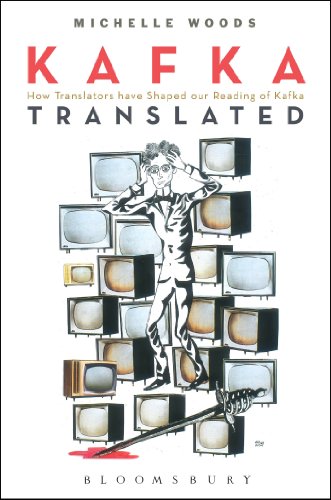

Most ebook files are in PDF format, so you can easily read them using various software such as Foxit Reader or directly on the Google Chrome browser.
Some ebook files are released by publishers in other formats such as .awz, .mobi, .epub, .fb2, etc. You may need to install specific software to read these formats on mobile/PC, such as Calibre.
Please read the tutorial at this link: https://ebookbell.com/faq
We offer FREE conversion to the popular formats you request; however, this may take some time. Therefore, right after payment, please email us, and we will try to provide the service as quickly as possible.
For some exceptional file formats or broken links (if any), please refrain from opening any disputes. Instead, email us first, and we will try to assist within a maximum of 6 hours.
EbookBell Team

4.7
46 reviewsKafka Translated is the first book to look at the issue of translation and Kafka's work. What effect do the translations have on how we read Kafka? Are our interpretations of Kafka influenced by the translators' interpretations? In what ways has Kafka been 'translated' into Anglo-American culture by popular culture and by academics?
Michelle Woods investigates issues central to the burgeoning field of translation studies: the notion of cultural untranslatability; the centrality of female translators in literary history; and the under-representation of the influence of the translator as interpreter of literary texts. She specifically focuses on the role of two of Kafka's first translators, Milena Jesenská and Willa Muir, as well as two contemporary translators, Mark Harman and Michael Hofmann, and how their work might allow us to reassess reading Kafka. From here Woods opens up the whole process of translation and re-examines accepted and prevailing interpretations of Kafka's work.